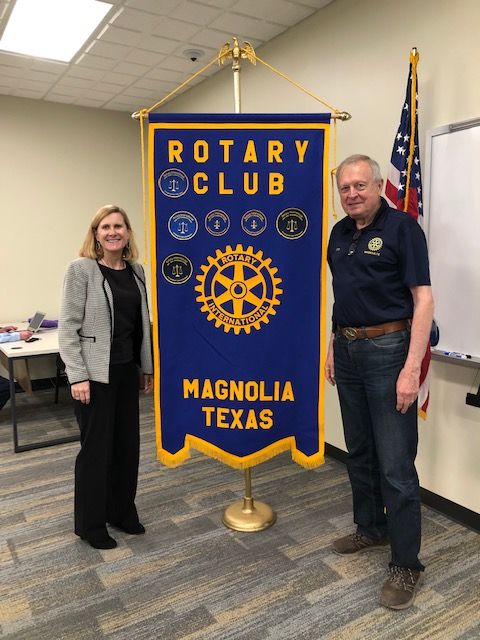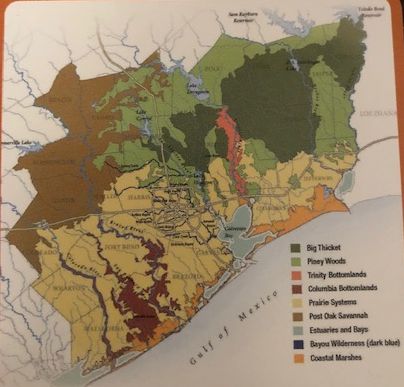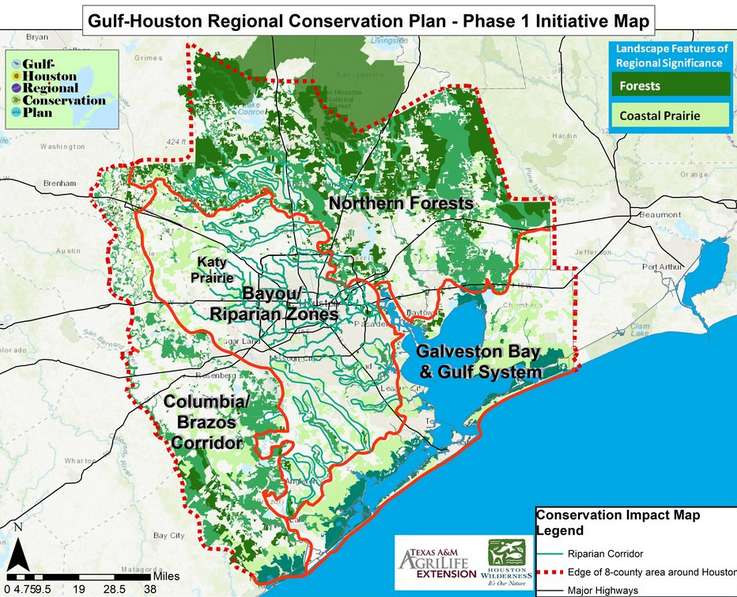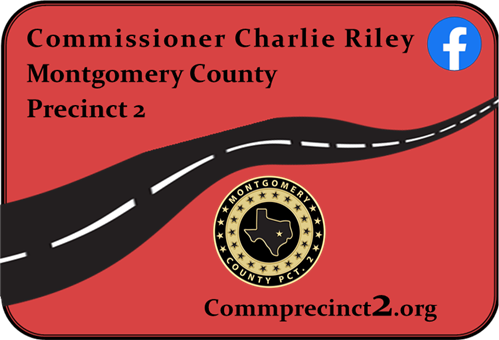
Gulf-Houston Regional Conservation Plan – Facilitated by Houston Wilderness, the Gulf-Houston Regional Conservation Plan (Gulf-Houston RCP) is a long-term collaborative of environmental, business, and governmental entities working together to implement resilience plan for the Gulf-Houston region. In addition to providing a unique online interactive database of all targeted nature-based infrastructure projects taking place in the region, the three key goals of the eight-county Gulf-Houston RCP include: (1) Increasing the current 9.7% in protected/preserved land in the eight-county region to 24% of land coverage by 2040, (2) Increasing and supporting the region-wide land management efforts to install nature-based stabilization techniques, such as low-impact development, living shorelines, and bioswales, to 50% of land coverage by 2040, and (3) providing research and advocacy for an increase of 0.4% annually in air quality offsets through carbon absorption in native soils, plants, trees, and oyster reefs throughout the eight county region.
See link to the left for the Gulf-HoustonRCP.org website.
Collaborative Grant Organizing Program- Houston Wilderness works with multiple stakeholders and federal/state agencies on collaborative grant proposals and funded projects, often in “pioneering” areas of environmental planning and resilience in the Greater Gulf-Houston Region. Since its creation, the CGO Program has brought tens of thousands of dollars of additional dollars to over 50 partners in our region.
Wilderness Passport, Great Green Quest - With the Wilderness Passport as a guide to the 10 diverse ecoregions found in the 13+ county region surrounding Greater Houston, Great Green Quest distributes over 35,000 of these passports to schools, YMCA centers, park community centers, and region-wide libraries and interested community groups. Passports were passed at during the meeting.
Houston Wilderness Ecosystem Services (ES) Primer - This ES Primer assesses the importance of integrating the value and benefits of ecosystem services into mainstream policy decision-making, providing policymakers with more tools to make mutually-beneficial decisions regarding the region's most pressing economic and environmental issues and recommend ways to accomplish these goals. A Second Edition of the ES Primer coming in Fall 2019.







